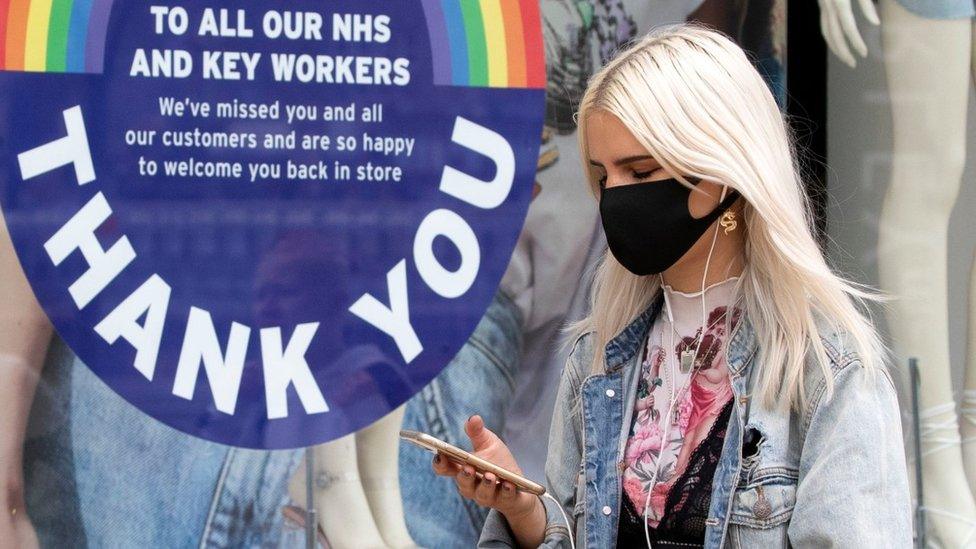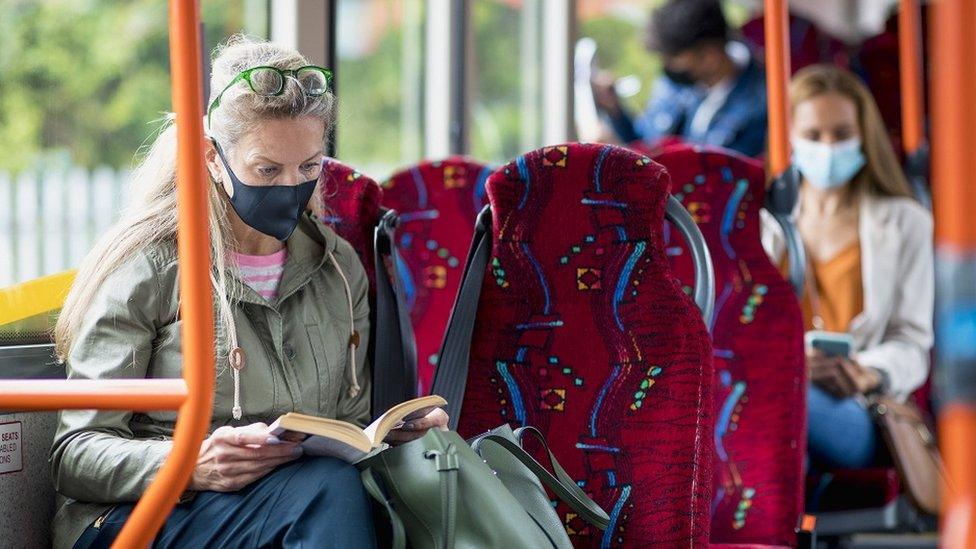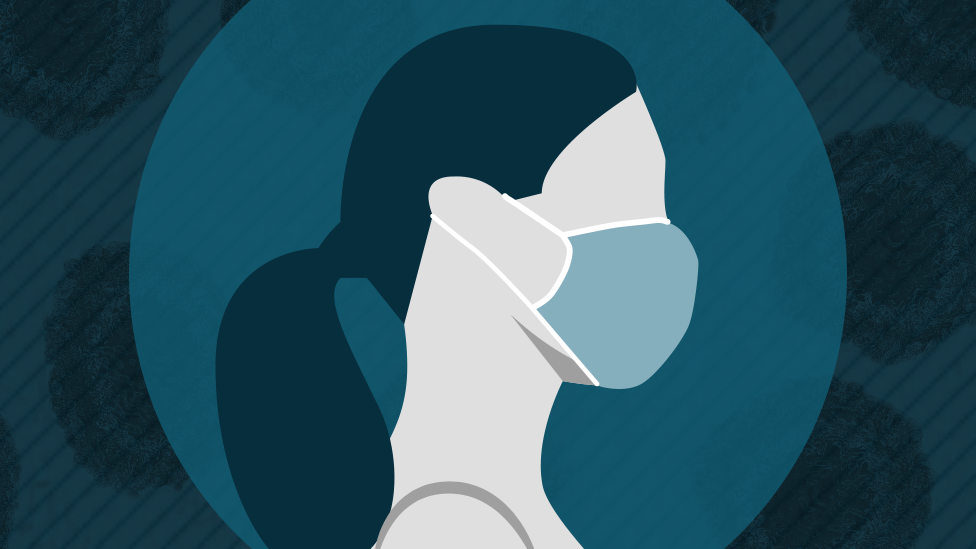'Ongoing need' for face coverings after 9 August in Scotland
- Published

The Scottish government said people may need to continue wearing face masks in shops and on public transport
The Scottish government has said there will be "ongoing need" for face coverings when all other restrictions are lifted on 9 August.
It said that while measures are "under review" people could still be expected to wear masks on public transport and in shops.
In England, however, wearing masks is soon expected to become a "personal responsibility".
All legal restrictions are expected to be lifted in England on 19 July.
The UK government's Communities Secretary Robert Jenrick told the BBC he would like the four nations to "move as one" on the matter but acknowledged the picture was different across the UK.
Scotland is due to move to level zero on 19 July, with all other major legal restrictions scheduled to be dropped on 9 August.
However, that does not currently include the wearing of face coverings, which could continue in certain settings - for example, shops and public transport.
A spokesperson for the Scottish government said decisions had not yet been made on "baseline" measures after the move.
They said: "We will take account of social and economic factors as well as the epidemiological impact on transmission and will keep measures under review.
"As the first minister has set out, we will have to manage living with Covid 19 for some time to come, even when we are able to move beyond level zero.
"There will still be some ongoing need for face coverings, for example on public transport and in retail, and we will be working with sectors to establish baseline mitigations and produce further guidance by end of July."
Wearing face coverings on public transport and in shops became a legal requirement in July last year.
People with certain medical conditions or disabilities, and children under five, were exempt.
All legal restrictions are expected to be lifted in England on 19 July, with the public having to exercise "judgement" on issues like wearing face coverings.
Mr Jenrick told the BBC: "We would like the whole of the union to move as one. We are going to work with Scotland, Wales and Northern Ireland to try and be as co-ordinated as possible.
"Cases are slightly different in each of the four nations but certainly in England, our view is that things are looking positive for July 19."
Mr Jenrick said the government was "still looking at the data" in terms of allowing those who have been fully vaccinated to be able to holiday quarantine-free in countries on the amber list for international travel.
But he added: "It is our objective, yes, that those who are double vaccinated should be able to travel to amber list countries as soon as possible, including for holidays."
Your coronavirus face covering selfies
Some doctors have warned that certain measures - including the use of face masks - should be kept beyond July, with the British Medical Association (BMA) calling the rise in infections alarming.
Dr Christine Tait-Burkard, from the University of Edinburgh, told the BBC she favoured a more cautious approach.
She said: "We can definitely go through the next step on 19 July despite the numbers - and that sounds absolutely mad, but the hospitalisation numbers still look very encouraging and the vaccination programme still looks encouraging
"But I'm quite a bit happier with the Scottish approach to eventually release everything in August only."


- Published4 July 2021

- Published16 March 2022
